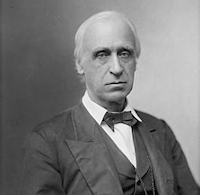(Private and confidential.)
SPRINGFIELD, ILLINOIS, October 29, 1860.
My dear Sir: Yours of the 26th is just receieved. Your suggestion that I in a certain event shall write a letter setting forth my conservative views and intentions is certainly a very worthy one. But would it do any good? If I were to labor a month I could not express my conservative views and intentions more clearly and strongly than they are expressed in our platform and in my many speeches already in print and before the public. And yet even you, who do occasionally speak of me in terms of personal kindness, give no prominence to these oft-repeated expressions of conservative views and intentions, but busy yourself with appeals to all conservative men to vote for Douglas,—to vote any way which can possibly defeat me,—thus impressing your readers that you think I am the very worst man living. If what I have already said has failed to convince you, no repetition of it would convince you. The writing of your letter, now before me, gives assurance that you would publish such a letter from me as you suggest; but, till now, what reason had I to suppose the “Louisville Journal,” even, would publish a repetition of that which is already at its command, and which it does not press upon the public attention?
And now, my friend,—for such I esteem you personally,—do not misunderstand me. I have not decided that I will not do substantially what you suggest. I will not forbear from doing so merely on punctilio and pluck. If I do finally abstain, it will be because of apprehension that it would do harm. For the good men of the South—and I regard the majority of them as such—I have no objection to repeat seventy and seven times. But I have bad men to deal with, both North and South; men who are eager for something new upon which to base new misrepresentations; men who would like to frighten me, or at least to fix upon me the character of timidity and cowardice. They would seize upon almost any letter I could write as being an “awful coming down.” I intend keeping my eye upon these gentlemen, and to not unnecessarily put any weapons in their hands.
Yours truly, A. LINCOLN.
[The following indorsement appears on the back:]
(Confidential.)
The within letter was written on the day of its date, and on reflection withheld till now. It expresses the views I still entertain.
A. LINCOLN.





